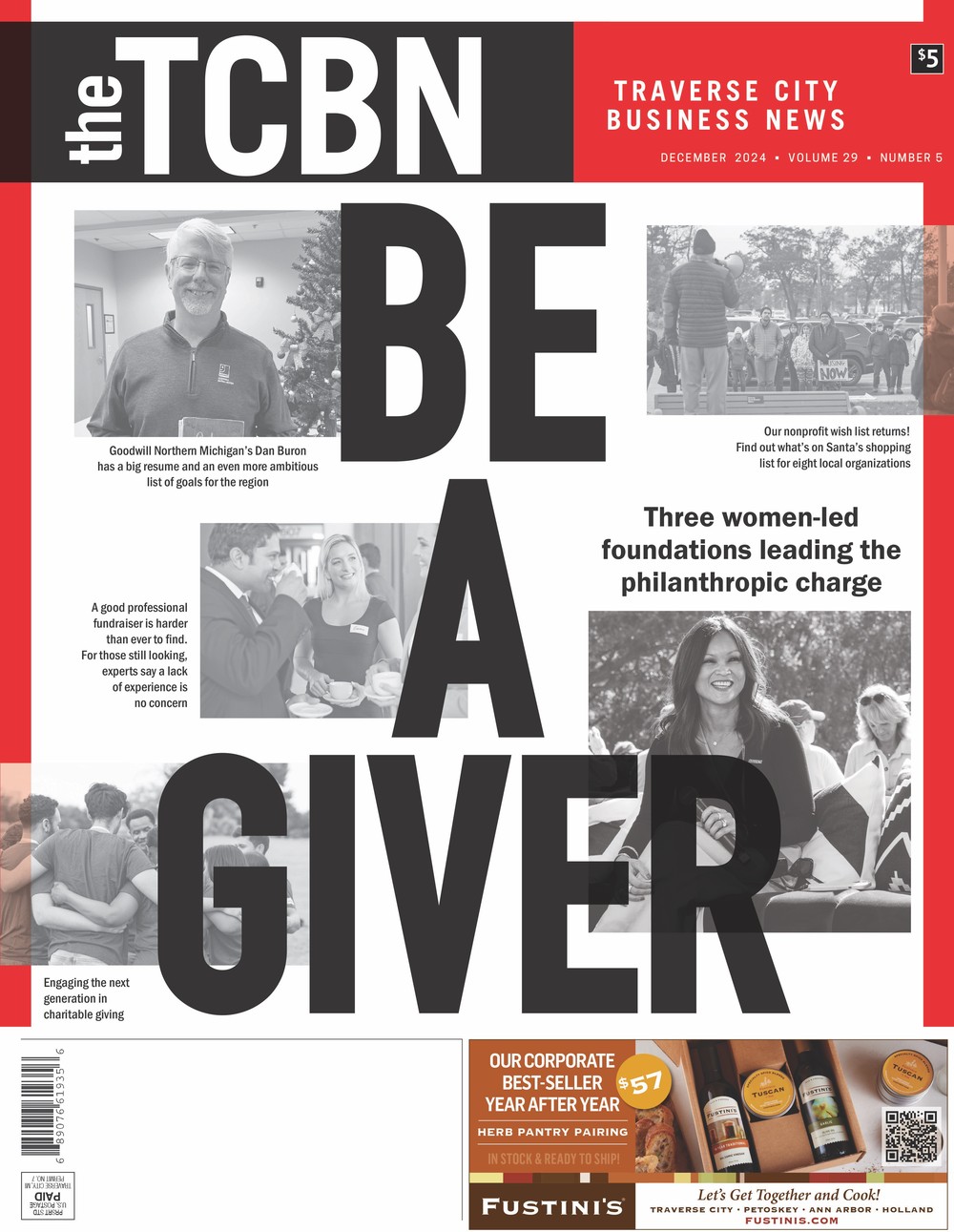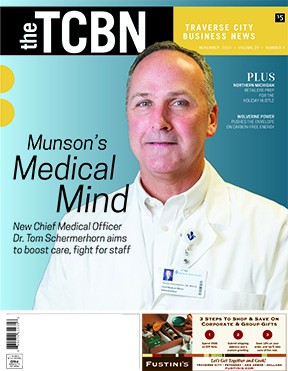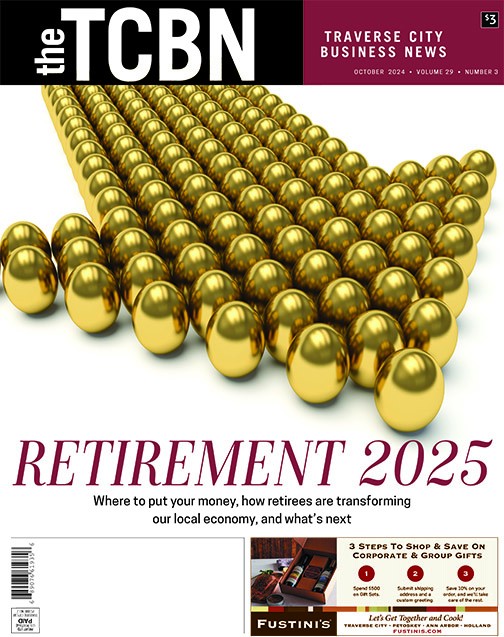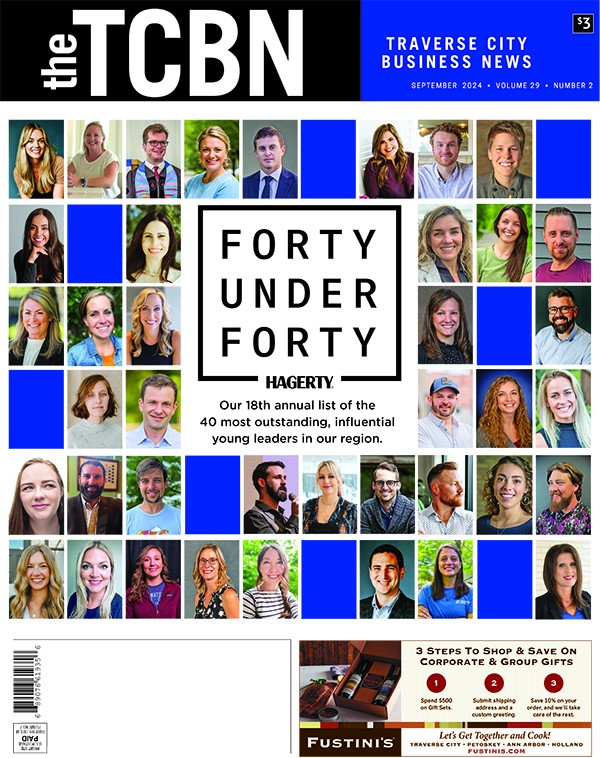Did Traverse City's Healthier Drinking Culture project fail?
July 2024
The goal was ambitious: Reshape the culture and attitude around alcohol consumption in downtown Traverse City.
In 2021, the City of Traverse City, the Traverse City Police Department (TCPD), and the Traverse City Downtown Development Authority (DDA) teamed up for a Healthier Drinking Culture initiative. The project, which involved significant engagement from the general public and downtown businesses alike, resulted in a strategic plan with a laundry list of objectives aimed at curbing issues like binge drinking, public intoxication and drunk driving in the Traverse City area.
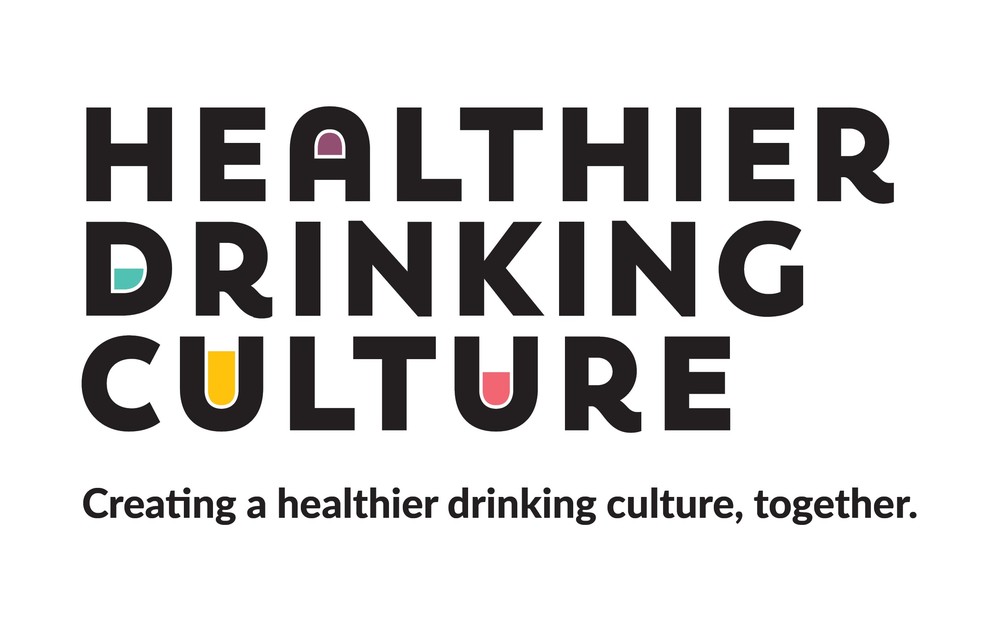
Two years later, there’s some question about just how much the initiative actually changed. Speaking to TCBN sister publication The Ticker this spring, Addiction Treatment Services CEO Paula Lipinski shared that, despite a pandemic-era spike in local drug overdoses and mounting issues around fentanyl and methamphetamine in the region, the biggest addiction problem in northern Michigan isn’t drugs, but alcohol.
“Sixty-five percent of the people that we service through Addiction Treatment Services, their primary diagnosis is alcohol use disorder,” Lipinski said. “Yes, opioid use disorder is still an issue; yes, the use of fentanyl is very concerning. But the majority of the people that we serve are working through alcohol use disorder.”
Undeniably, the Traverse City area still has its woes around alcohol. According to Michigan State Police data, Grand Traverse County tallied 353 DUI arrests in 2022 – the highest of any Lower Michigan county north of Muskegon, and roughly the same as the totals from 2021 (352) and 2019 (343).
Meanwhile, according to the most recent data from the Behavioral Risk Factor Surveillance System – a phone survey administered annually by the Michigan Department of Health and Human Services – Grand Traverse County well outpaces the statewide averages for drinking activity: 7.6% of adults fall into the category of “heavy drinkers,” defined as more than two drinks daily for men or one drink daily for women, compared to 6.5% statewide. And 21.3% of local adults binge drink – five or more drinks on one occasion for men and four or more drinks on one occasion for women – compared to 17.2% for all of Michigan.
The Healthier Drinking Culture project was intended to curb those numbers, whether by encouraging business owners to offer non-alcoholic beverages on their menus or by giving city leaders the task of reevaluating their criteria for approving new liquor licenses. In 2024, many of the objectives identified in the strategic plan remain incomplete and many have not started.
Notably, the Healthier Drinking Culture project was spearheaded by an eight-person team, which included stakeholders from the city, the TCPD, and the DDA, as well as two outside consultants: Elise Crafts of Statecraft, who led the project management; and Megan Motil of Parallel Solutions, who led the community engagement. While Crafts tells the TCBN she’s recently noticed increased mentions of the Healthier Drinking Culture project in the local news and is “glad this project is getting renewed attention,” she says that she and Motil are no longer in the loop about the effort.
As for the other six members of the project team, only two – City Clerk Benjamin Marentette and TCPD’s Jonathan Culver, the community police officer for downtown Traverse City – are in the same jobs they held two years ago. Gone are former City of Traverse City Manager Marty Colburn, whom city commissioners fired from that post last April; former Police Chief Jeff O’Brien, who retired last July; former DDA CEO Jean Derenzy, who stepped down from that role in March; and Katy McCain, who left her job as director of community development for the DDA in December 2021.
The TCBN touched base with Marentette, given his status as one of the last remaining members of the original Healthier Drinking Culture team. He says the initiative is still on the minds of many at the city level, even if most of its key objectives have yet to be carried out.
“We’re going to be providing the city commission with an update sometime this summer on the Healthier Drinking Culture initiative,” Marentette shared. “There was a strategic plan that was approved (by the city commission), and there are some elements that have been implemented from the plan. For instance, when our police officers are interviewing potential liquor licensees, they discuss elements of the Healthier Drinking Culture initiative, in terms of mindful service of alcohol to patrons. But one of the key pieces that remains in that plan – and a piece we’ll be determining if the city commission wants to move forward with – is developing a criteria for awarding liquor licenses.”
Marentette says liquor license applicants do have to meet certain criteria to get their licenses approved by the city, but most are basic legal requirements – such as criminal background checks for proprietors, fire code inspections, and other building safety elements. The Healthier Drinking Culture plan urged the city commission to update city ordinances to go a step beyond those requirements by drawing up objective and clear criteria for the desired number, type, and location of liquor licenses.

“It would require a significant amount of resources to develop something like that in a thoughtful way,” Marentette said, explaining that the process of developing a new liquor license rubric would involve its own set of “robust engagement sessions” with business owners, local residents, and other stakeholders. “When we worked with the city commission to establish goals and objectives around 2022 and 2023, as always, there’s limited resources, and developing that new liquor license criteria wasn't identified as a top priority. Part of the reason was the city had applied for some grant funding to pay for that work, and we didn't receive that funding.”
Marentette says he expects the city commission will revisit the subject this summer, once his office has had an opportunity to share a full update on the Healthier Drinking Culture project.
“We’ve had a few new liquor license applications brought to the city commission recently, and there’s been an expression from some commissioners of wanting to hear an update on the Healthier Drinking Culture initiative," he said. "So, we’ll give that update, and from there, it’s really a matter of seeing if there is a desire to develop that new criteria for licenses. If there is, we need to allocate some resources that we have in house to do that – which means shifting priorities – or we need to go after some external resources to help fund that work.”
Updating the city’s liquor license ordinance isn’t the only objective in the Healthier Drinking Culture strategic plan that has yet to gain any traction. For instance, the plan also called for the formation of a “Responsible Hospitality Council,” a body made up of downtown liquor license holders that would work with the city, the TCPD, and the DDA to “articulate a vision, reinforce best practices, and support voluntary implementation of best practices by liquor licenses holders and other businesses.” The plan even suggested that the city should involve the RHC as part of its revamped liquor license approval process. No such body yet exists, according to Marentette.
Despite the lack of progress on many key objectives, Marentette says he doesn’t see the Healthier Drinking Culture initiative as a failure. Even without sweeping policy changes, he says, the conversations the project started have led to positive change.
“It has been exciting to see the number of places that now have mocktails or other non-alcoholic beverages available,” Marentette said. “And at the city, we’re working to encourage more public events in the community that aren’t alcohol-based. There are still food and wine events, or beer events, but we’re seeing more things that are not at all focused on alcohol. So, I think overall, we’re moving to a place where there is more balance.”








